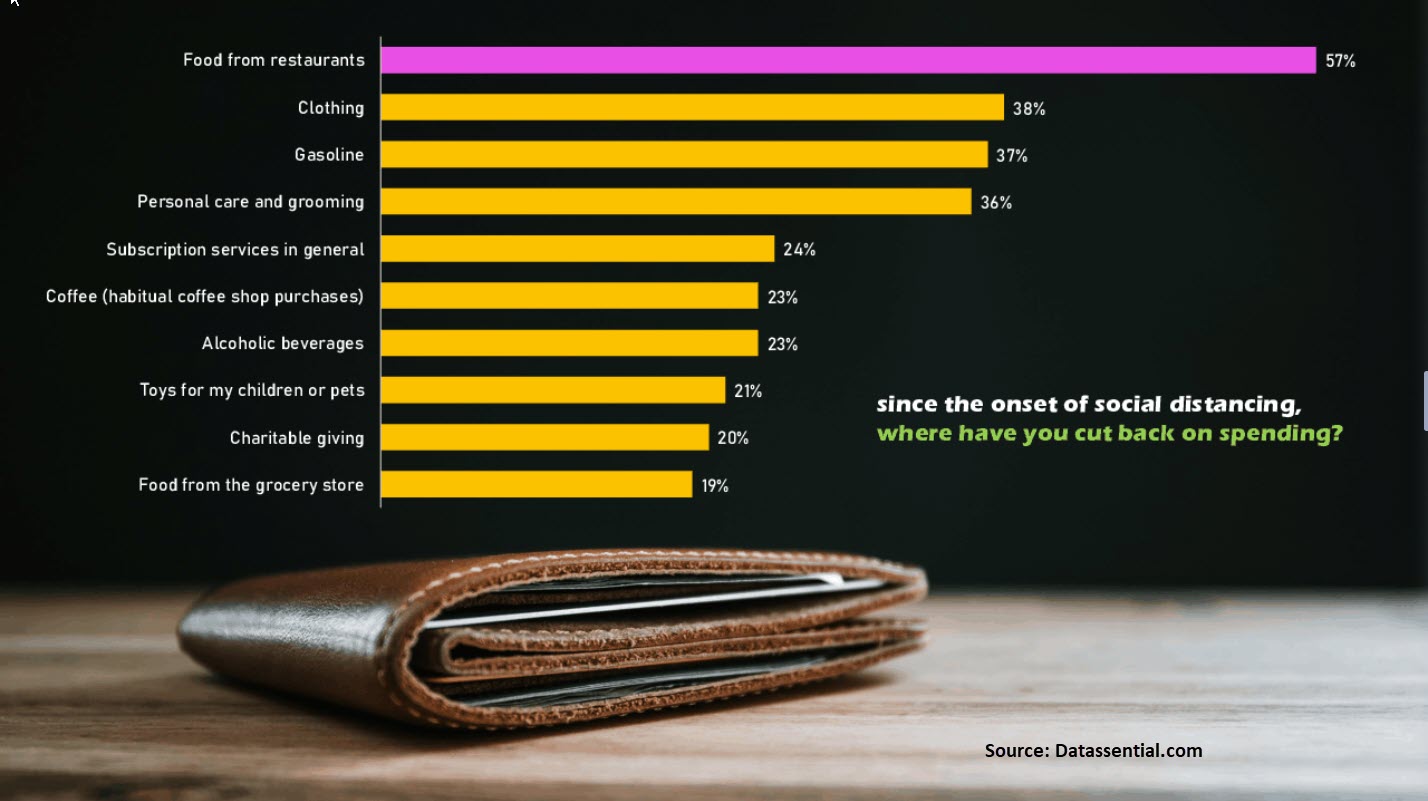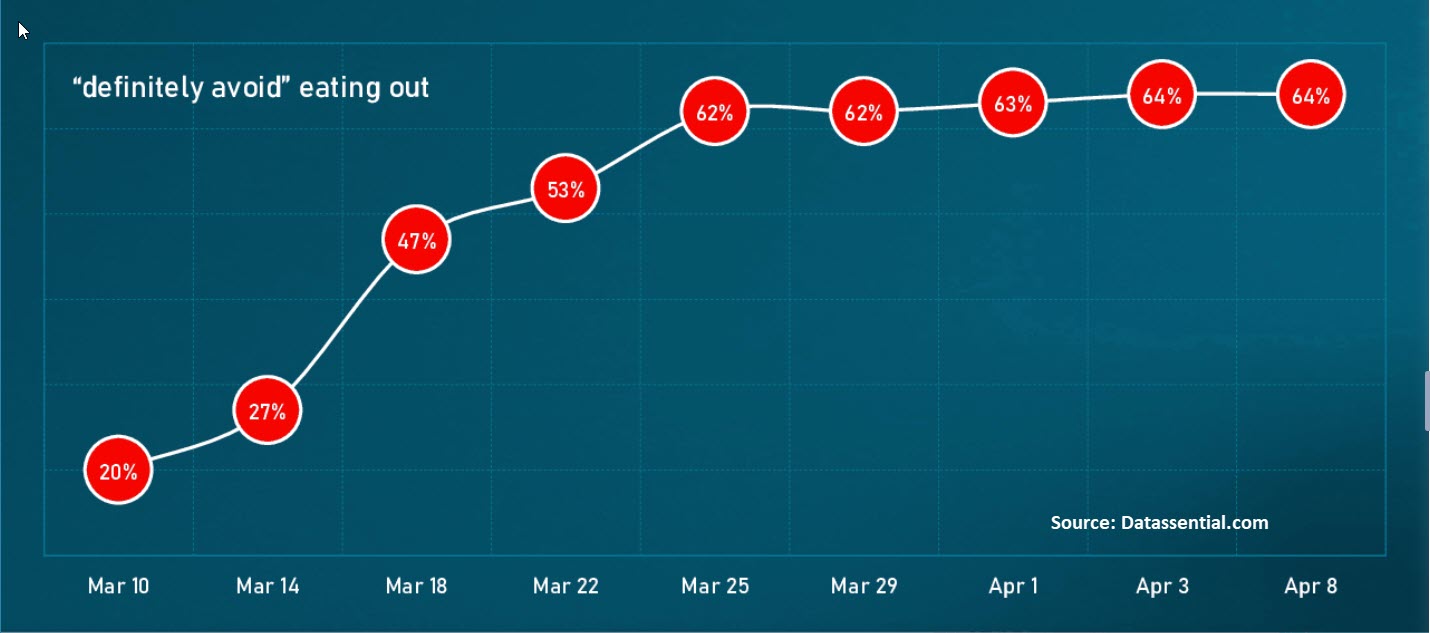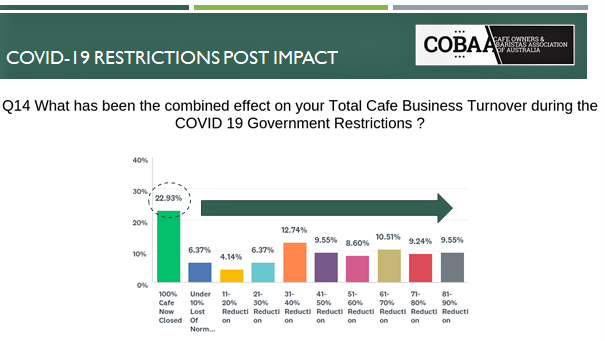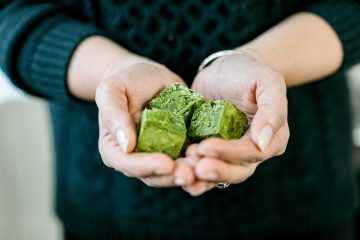Tea industry news for the week of April 20
- Monitoring Consumer Behavior
- Record Prices at Colombo’s Digital Auction
- Kenya May Ban Direct Tea Sales
- Physical Distancing on 1,500 Acres in Assam
- Private Investors Back Millennia Flash-Frozen Tea

Datassential surveys consumers weekly and hosts a Friday webinar Food + Coronavirus to share what they have learned about fast-changing consumer behavior. The presentations are free. Mark DiDomenico is director of consumer solutions at Datassential. He told participants during a webinar hosted by the National Coffee Association last week that American consumers at this point are more worried about their health than wealth (health concerns peaked at 67% April 1 and remained at 61% the week of April 8). Respondents (64%) consistently say they will “definitely avoid” eating out.
When asked “since the onset of social distancing, where have you cut back on spending?” eating at restaurants topped the list at 57%.
“Consumers are avoiding risk but also seeking ways to adjust,” said DiDomenico, who cited examples such as cooking from scratch (42% say they do this more often), eating comfort foods (+33%), stress eating (+24%), and drinking alcohol more often at home (+14%). Moving forward? “Consumers are likely to avoid buffets and salad bars. Half say they will order for delivery (and disinfect delivery packaging), he said. Shopping for food online (+22%) is a new behavior that is very likely to stick, he said.

Global Impact
David Parnham, Research Director at Café Culture in Australia, recently completed a report on the immediate impact of lockdowns. The impact is sobering. While Australians were not strictly confined to their homes (New Zealand is in lockdown), a survey of cafe owners found that 19% experienced a 70-90% decline in sales, with an additional 19% reporting declines of 50-70% and 29% reporting declines of 20-50% in sales. Café Culture Managing Director Sean Edwards posted several helpful suggestions from café owners for “Staying Afloat in Tough Times.”

Business News
Sri Lanka is embracing a digital future for the Colombo Tea Auction according to Sri Lanka Tea Board Chairman Jayampathy Molligoda. The country’s first three electronic auctions in April resulted in sales of 16.5 million kilos of tea. Efforts to switch from outcry to electronic bidding span 20 years, according to Jayantha Karunaratne, chairman of the Colombo Tea Traders’ Association. “Changing the mindset of some players is not an easy task, said Karunaratne, adding, “Our vision is to go online because it provides advantages such as lower cost, greater efficiency, and more transparency.”
As soon as the auction opened demand from Russia, Turkey, and the Middle East drove record prices. An Uvakellie from Vellapatna Estate, owned by Madulsima Plantations, sold for SLRs810 ($4.21) per kilo and a Uva High from Finlays Oodoowerre Estate sold for SLRs980 ($5.10) a kilo, a record for FBOPF1 grade tea at auction. Akbar Brothers purchased the lot. Dickwella Estate then broke the SLRs980 mark at SLRs1000 ($5.20) per kilo for an FBOPF1 bought by Ceylon Tea Marketing.
“The response from industry stakeholders has been fantastic. The Sri Lankan tea industry has once again proven its resilience to upheavals,” said Dhammike Wedande, senior vice president of Asia Siyaka Commodities, a leading tea broker.
Direct Trade Ban
Kenya’s Ministry of Agriculture intends to ban direct tea sales. New regulations state that “henceforth, sale by private treaty (direct sales overseas) is outlawed,” forcing growers to sell exclusively through the auction process.
The new regulations raised concerns voiced by the East African Tea Trade Association (EATTA), which manages auction and direct tea sales in Mombasa.
“Exporters who have long-term contracts with international buyers might have to review those contracts, and we don’t know how this is going to affect the market,” EATTA Managing Director Edward Mudibo told Business Daily.
The Tea Auction in Mombasa, the world’s largest by volume, is experiencing difficulties associated with the spread of the coronavirus and was relocated to a hotel.
The entire auction system is “dysfunctional,” according to small growers who appealed to Kenya’s President Uhuru Kenyatta to intervene to curb predatory behavior amid falling prices. Reformers agree and hope to automate bidding.
Kenyatta’s reforms, announced last week by Agriculture Cabinet Secretary Peter Munya, require the Kenya Tea Development Agency to pay 50% of the price of monthly deliveries. The remainder is to be paid as an annual bonus. In the past, KTDA factories paid farmers KS14-16 per kilo. Buyers will now pay 10% down with the balance due before export. Factories must pay farmers within 30 days after receiving auction proceeds. Also, brokers representing factories will be limited in the number they represent (no more than 15 factories in the current proposal).
Physical Distancing on 1,500 Acres
India reported more than 1,500 new COVID-19 cases in the 24 hours ending Monday, April 20, bringing the national total to 17,656 confirmed cases with 559 deaths. There is no indication of a “flattening curve” with the contagion likely to peak in four to six weeks. West Bengal, which includes the fabled Darjeeling growing region, has 339 reported cases with 12 deaths. Assam reports 35 cases with one death.
Samar Jyoti Chaliha, who manages the Dikom Tea Estate near Dibrugarh in Assam, harvested only 17,000 kilos of tea in March due to government-ordered lockdowns. Usually, the garden produces 40,000 kilos of first flush tea. The early harvest typically yields 70,000 kilos, “but this year, I may be able to make a max of 45,000 to 50,000 kilos,” said Chaliha. The workforce is a concern. “I am limited to 50% of peak season’s employment (3,800 workers),” he said. Chaliha is currently paying 1,800 workers, but few are plucking tea. “Overgrown bushes take a lot of time. Right now, it is more slashing/skiffing and hand breaking overgrown leaves and branches which are tossed to the ground. We cannot make tea out of this stuff,” he said.
Restoring the bushes should be complete by April 23 or 24. It will then take another 15 days to come up with succulent leaves, which brings us to the beginning of the second flush, he explained. A typical second flush yields approximately 260,000 kilos (2.6 lakhs) during May and June.
“I don’t know how the bushes will behave after skiffing at this time of year (pruning is normally done in winter when the plants are dormant). Dikom produced an average of almost 3,000 kilos per hectare last year, a highly productive yield. “If all goes well, the second flush should be fine,” he said.
The garden currently has 1,500 acres (635 hectares) under tea. Given the vast area, instead of limiting the number of workers to one per acre, when they are most needed, consideration should have been given to simply assigning smaller numbers of workers within each block (say 100 vs. 200). Growers could assign 100 masked pluckers to each of two widely separated sections and maintain safe distancing of 10 feet between pluckers. Even with 3,800 workers in the field at the same time, in most of Assam’s licensed tea gardens, there would only be two workers per acre. “Apparently, no one took this up with the government,” he said.
Production News
India will take additional steps to spot-check tea to ensure it complies with the Food Safety and Standards Authority of India (FSSAI ) norms. Random checks should result in higher prices a necessity given the lower volumes at auction. “Tea failing to adhere to the FSSAI parameters may not be allowed to be offered in the auctions depending on the extent of the violations by the producers,” according to the circular issued to planters. Tea Board Deputy Chairman Arun Kumar Ray told the Deccan Herald, “right now, the priority is to comply with the health safety norms and hygienic practices in tea gardens to combat the COVID-19 crisis.”
In Sri Lanka, February Yield Marks Decade Low
Sri Lanka harvested only 17.9 million kilos of tea in February, down 3.8 million kilos from February 2019. High grown and medium grown tea showed marginal gains, but tea from the lowest elevations declined 28.3% due to drought. Forbes and Walker Tea Brokers report the first two months of 2020 yielded only 39.8 million kilos, down 5.1 million kilos compared to the first two months of 2019.
Health News
Sri Lanka is promoting black tea as an immunity booster with the slogan: “Double Your Protection” The campaign online and in print states that “Black tea is not only delicious but packed with immune-boosting theaflavin antioxidants. Enjoy 3 to 4 cups daily, and be protected both inside and out.”

The Times of India reports that the Indian Council of Medical Research (ICMR) will study the antiviral properties of theaflavin-3, a compound found in black tea. The United Planters’ Association of South India (UPASI) circulated a press release citing work by researchers in Taiwan and China, suggesting replication of SARS CoV-2 is inhibited by polyphenols commonly found in tea. These include Theaflavin-1, Theaflavin-2, and Theaflavin-3, all of which are abundant in black tea.
The European Journal of Preventative Cardiology reports fewer heart attacks and a lower risk of dying of heart disease among tea drinkers participating in a Chinese study of 100,000 adults over seven years. Those who consumed three or more cups of tea per week had a 20% lower risk of heart attack or related cardiac incidents and a 22% lower risk of dying of heart disease.
Retail News
Millennia Tea, a Canada-based supplier of flash-frozen tea leaves, closed its first private funding round at $500,000+. The pioneering brand, based in Saint John, processes tea much like leafy produce at origin where it is washed and frozen to preserve antioxidants destroyed during the drying process.

Shelly King, CEO of Natural Products Canada, a key investor and strategic advisor, told Huddle that “today’s health-conscious consumer has embraced ‘food as medicine’ and is looking for ways to optimize the nutritional value of their everyday pleasures like a simple cup of tea.”
“Millennia TEA has a category-changing product that ticks all the boxes for today’s consumer,” said King.
Upcoming Events
The United Nations has designated May 21 as International Tea Day to raise awareness of the need for sustainable production and to honor those working to supply the world with tea. The British have a reputation for never enough when it comes to tea, so they also celebrate National Tea Day (Tuesday, April 21). The Sun once again published a chart of tea in 16 shades from red amber to milky white. The article always leads to squabbles over exactly how much is too much dairy. Historian Seren Charrington-Hollins explains why milk is added last:
“One of the fiercest topics is whether to put the milk in the cup before or after the tea. In the early days of British tea-drinking, when the china we had was of such poor quality that it would crack under the heat of boiling water, milk was always put in first to cool the tea.
“But in the 18th century better china started to arrive and those who could afford it switched to putting milk in after the water, as a social signifier. Continuing to put milk in first was associated with the lower classes.
“Tea tastes better if you put the milk in after the hot water because you avoid scalding the milk. You also maintain the perfect temperature for brewing, which is 95C,” advises Charrington-Hollins.



One response to “Need to Know | Changing Consumer Behavior”
Thank you, Dan! Great articles!